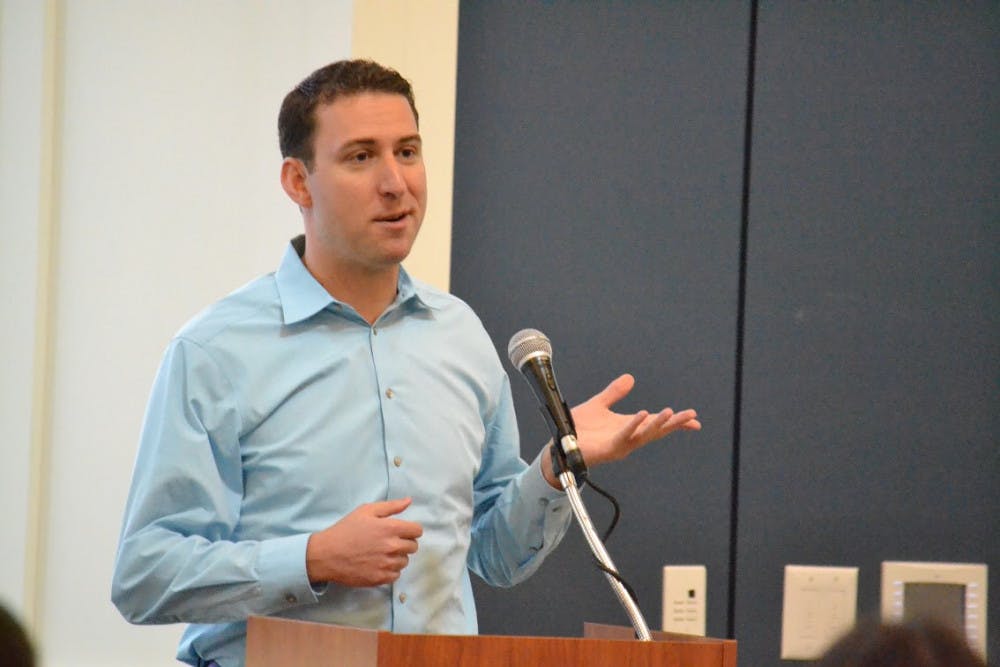By Emily Solinski Correspondent
“My job is not to satisfy the scientist, but to satisfy my readers,” Grant said. “I’m not going to use the jargon, I’m going to put it in my own words.”
Grant’s talk addressed the process of simplifying information from complex science journals, press releases and media outlets and then how to convey the information into news for the general public.
Grant confronts this challenge every day within his profession as a writer covering physics for Science News magazine, based in Washington, D.C.
His multi-disciplinary talk brought about a mixture of faculty and students in the audience, some interested in the scientific aspect of his talk while others sat in to hear about Grant’s experiences in journalism.

Grant spoke about the range of topics he has reported on, spanning from black holes to the Kepler space telescope to the ultimate fate of the universe.
“I’m showing you a light curve in a presentation about journalism,” Grant said. “Science is pretty darn important.”
He discussed how hard it really is to write about the information in the field of science. Grant said the most difficult part is nailing the perspective, storytelling and context of scientific journalism, which are also the elements that he finds most important.
“I think you’re missing a point,” biomedical engineer professor Brett BuSha told Grant during the presentation. “When I listen to you, it sounds more like you are educating. You are taking something then making it more palatable and understandable for another group and that education aspect is important.”
Grant agreed with BuSha. According to Grant, pleasing everyone while reporting on science is not a truly feasible task.
“The ultimate compliment is when both sides don’t like you, but both sides don’t have any factual inaccuracies,” Grant said.
Grant said his experience serving as editor of The Signal helped him understand the importance of editing a publication before it is published.
He brought up an image of one of his drafts for an article he had written onto the projector screen. The draft had just about the same amount of red editing notes on it from his editor as actual writing that he had done himself.
“By the way, this wasn’t my first draft,” Grant said. “This was like my second or third.”
Grant said heavy editing is something that students have to be OK with as aspiring journalists.
“If that bothers you, you should find another profession,” he said.
Grant concluded his talk by providing tips for anyone interested in the profession. Some of these tips included reading various types of science reports and writing for The Signal. He then listed useful websites to visit.
Grant received his bachelor’s degree in physics at the College and his master’s in journalism from New York University’s Science, Health and Environmental Reporting Program.
“I knew I didn’t want to work in a lab. As cool as I thought physics was, I knew I didn’t want to do that,” Grant said.







